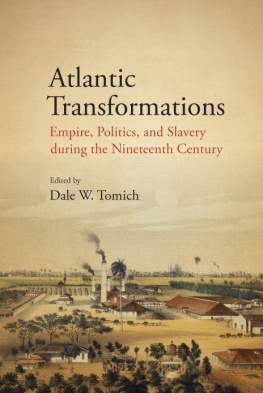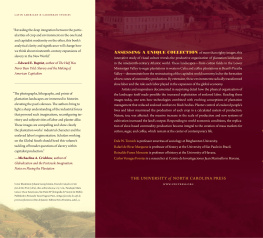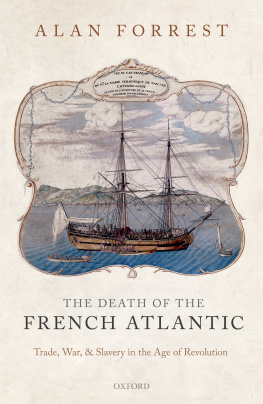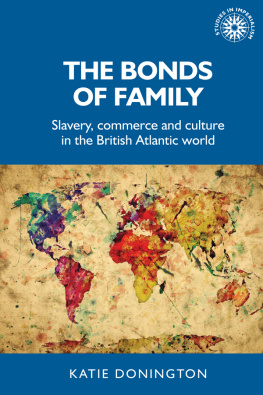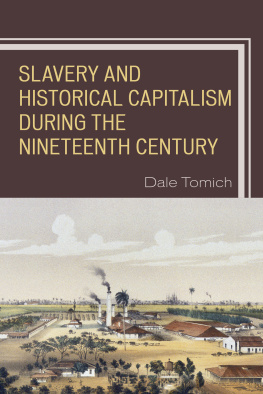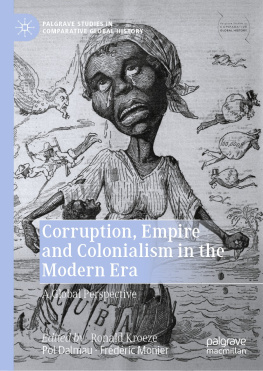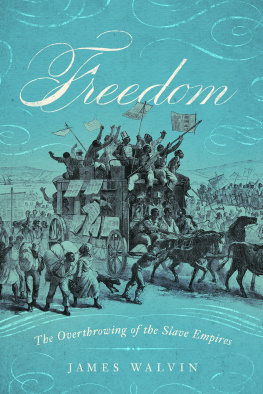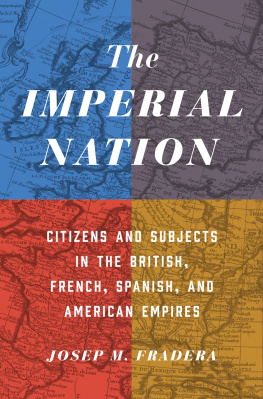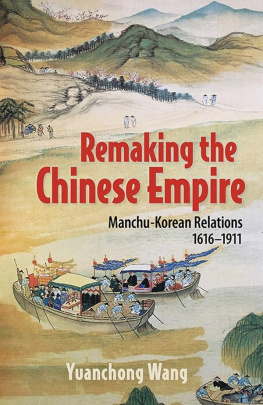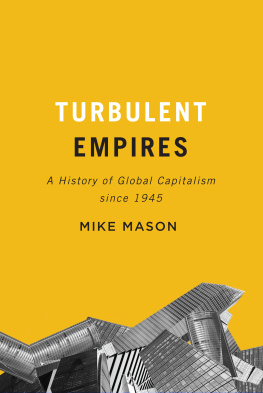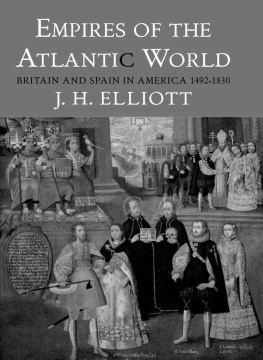17801880
A Century of Imperial Transformation
Josep M. Fradera
D uring the revolutionary times from the 1780s to the 1830s, successive internal crises and constant conflicts among empires seemed to point to the demise of the great European monarchic empires, which were, to all appearances, in their death throes (Klooster 2009; Armitage and Subrahmanyam 2010). However, a century later, two of those empiresthe British and the Frenchgoverned much of the world, a much larger part than they had ever dominated or held as spheres of influence before. At some distance, the Spanish and Portuguese crossed that period of revolution and war but kept their possessions in the Caribbean, the Philippines, and Africa. The United States of America and monarchical Brazil followed the imperial path inherited from the British and the Portuguese in the Americas. In contrast, most of their rivals and competitors in Europethe Russians, Ottomans, and Germanshad gone through the cycle of the late eighteenth-century revolutions, or had been impacted by them during the Napoleonic Wars and later conflicts, although the weight and depth of that impact among them was undoubtedly unequal (a general approach may be found in Bayly 2004). If certain events symbolized the imperial fin-de-sicle, these were the Berlin Conference of 1885, the Fashoda Incident (in South Sudan), and the 1898 Samoan Crisis that touched Africa and Oceania, in which the French and British seemed to want to seal their global expansion at the expense of their more direct rivals. The meeting at Berlin was characterized by the consensus of the big boys club regarding the distribution of the world among those powers that met certain criteria of capitalist modernization (a requisite that kept Spain and Portugal practically from the negotiating table). Continued confrontations between imperial powers showed the limits of a consensus built by birds of prey, where each player sought to define their spheres of influence or sovereignty on the ground.
Let us begin with the cycle of destruction and reconstruction that the monarchic empires underwent through the previously mentioned revolutionary period. The period itself, begun with the Seven Years War, led to the construction of a new kind of state, described and analyzed by writers such as John Brewer (1990), Jan Glete (2002), Stanley and Barbara Stein (2003), Carlos Marichal (1999), and Josep M. Delgado (2007). Impelled first by the tremendous costs of this and subsequent wars, the fiscal-military state resulted from a tendency that began with the War of Succession and the War of Jenkins Ear. The North American crisis and the French Revolution, with their huge external impact and their continuation in the Napoleonic Wars, firmly consolidated its bases. This sort of amphibious state, well equipped for war on land, but especially fitted for maritime warfare, was the indispensable instrument for the construction of contemporary empires, the differentiating factor par excellence of European societies, or those with a European matrix, versus the rest of the world (Davies 2011). In this juncture, colonial wars became a scenario upon which European and global hegemony were contested.
For Great Britain, the Thirteen Colonies independence war and Britains consequent withdrawal to an inhospitable northern frontier with a majority population of French-speaking Catholics inaugurated the cycle of destruction and reconstruction on a grand scale. On the other side of the globe, Britain also launched the costly operation of imperial stabilization begun in Bengal as well as the war on the Indian subcontinent first against Hyder Ali Khan, and then his son Tipu Sultan, great reformers of the Kingdom of Mysore, who allied with the French against the British East India Company until the total defeat of the French in 1799. Third, the independence of the United States signified the crisis in the Antilles that inexorably led to the 1807 British abolition of the slave trade and the growing criticism of slavery itself, and, consequently, to the need to modulate planters assemblies loyalty to the Crown, which then governed the British Caribbean islands. The French did not face minor problems, either. Expelled from North America and the Indian subcontinent by the British, they also had to deal with the spectacular crisis of their Antillean possessions, especially Saint-Domingue and Guadeloupe, as well as the sale of Louisiana in 1802. Despite all this, they kept a stronghold in the Caribbeanwith the exception of republican Haitiand on the two African coasts through Senegal and Reunion/Bourbon Island. Nor did they abandon the minor enclaves that the British did not take from them in southern Asia. Furthermore, they closed this period with the conquest of Algeria in 1830, a territory that had been formally under Ottoman sovereignty. Thus seen, locating the change in the nature of the state at the center of the imperial transformation and crisis makes sense only if we understand how society and war interacted throughout the process. That is, we must understand how interstate competition became a catalyst for social change.
Empires are undoubtedly constituted through violent conquest, but their government must rely on broader means in order to rule. The crux of the matter is how the transformation of the stateits politics of war, finances, and international relations, its bureaucracy and sovereigntyconnects with inherently changing societies. In this context we must reflect on what Peter Marshall calls the making and unmaking empires (Marshall 2005). As war indeed led to the broadening of the states basis in terms of military recruitment and fiscal demands, the states intrusion in the societies formed by the empires, which Joanna Innes defined as the fiscal-military states domestic face in reference to day-to-day governance, was produced inside as well as outside Europe (Innes 2011). This intrusion visibly disarticulated the old equilibrium upheld by the societies within the Atlantic portion of the European empires when other continents were added: enclaves and slave-trading posts in Africa, in the Indian subcontinent, and all the way to Java, Timor, and the Philippines. The foundations of all the old colonial complexes were necessarily altered. It was this that set off the revolutionary crisis across the conquered globe, as the imperial centers demands met with the resistance of defensive local ruling classes. The first of the great crises was that of the British Empires Thirteen Colonies. This conflict apparently revolved around the increased fiscal pressure that the imperial government tried to impose. The second exploded in the French Antillean colonies with the French Revolution, but it was preceded by a decade of complaints and demands by the colonies residents against lexclusif, the key imperial fiscal policy on sugar and overseas products. The repeated eruptions of violence in Spanish America, and between Lisbon and the Paulistas or So Paulo colonials, responded to the resistance of these empires American criollos to the imperial states new tributary exigencies. A hypothesis appears: it was not the weight of the new fiscal demands that caused the conflict, but the change in the nexus that tied the colonies with their metropoles, the articulation of policies that increased the imperial centers capacity to intrude more in colonial societies.
The consequences of these conflicts would lead to the complete decolonization of a very significant portion of the monarchic empires, as well as to an important redefinition of center-periphery relations. In every case, the revolutionary crisis signals a moment of decisive imperial change, namely, the transformation of old regime monarchic empires, formed by aggregation, with their multiple jurisdictions and motley constitutional and governmental solutions, and characterized by internal variegation, into empires that are represented as national spaces. In effect, colonial elites wish to receive the same political treatment as their counterparts in metropolitan territories. The profound meaning of North American colonists no taxation without representation and their criticism of the so-called virtual representation; the great truth of the period, that men are born and remain free and equal in rights of the French Declaration of the Rights of Man; and the idea that the Spanish nation is the re-union of all the Spaniards of both hemispheres, as the 1812 Constitution of Cadiz proclaimsthese are all reflections of the desire to fuse the monarchic empire into the single space of the new nation. Imperial constitutions were the instrument that articulated these demands for inclusion, constitutions that tried to blend the kings domains into the body of the nation, fusing nation and empire into a single political body. Nevertheless, such projects failed. Overseas political communities developed far from their metropoles, and, proud of their origins and their juridical-political cultures, the new obligations forced upon them by the monarchies dynastic and international compromises dangerously eroded that distance (Greene 2010).

